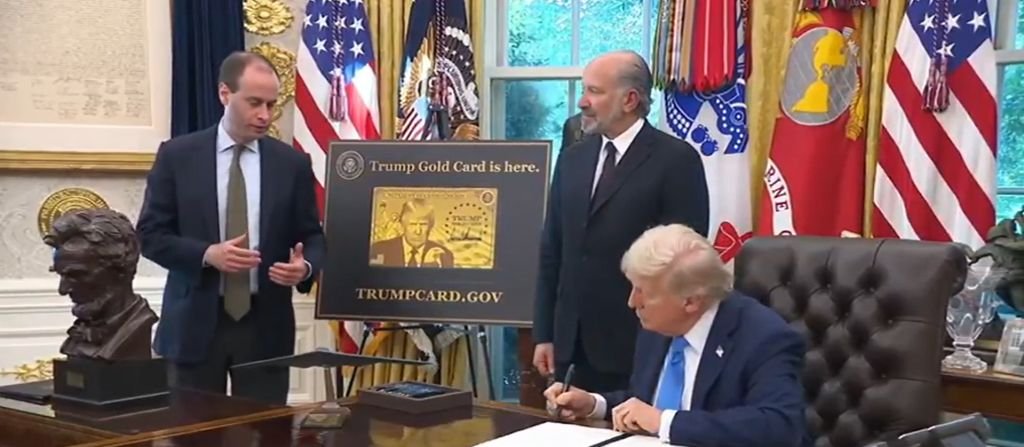President Donald J. Trump has signed a new Executive Order that will require companies to pay $100,000 to sponsor each applicant under the H-1B visa program, representing a dramatic increase from current costs.
The order, according to administration officials, is intended to transform the landscape for hiring highly skilled foreign workers and address longstanding concerns about the program’s impact on American jobs.
White House staff secretary Will Scharf stated that the move targets what he described as “one of the most abused visa systems” in the United States.
“This is supposed to allow highly skilled labourers who work in fields that Americans don’t work in to come into the United States of America,” Scharf said, emphasizing that the substantial fee increase would ensure only “very highly skilled” individuals are brought in, and that U.S. workers are not unfairly replaced.
Secretary of Commerce Howard Lutnick echoed this perspective, arguing that the higher fee would discourage the practice of using the H-1B program to source foreign workers for positions that could be filled by American graduates.
“If you’re going to train somebody, you’re going to train one of the recent graduates from one of the great universities across our land,” Lutnick said, noting that major corporations support the change as a means of fostering domestic talent.
The H-1B visa program, which allows U.S. employers to temporarily employ foreign workers in specialty occupations, has become a cornerstone for many technology and engineering firms. Under the new order, the significant cost increase could pose major challenges, particularly for smaller companies less equipped to absorb the additional expense.
Advocates of the order argue it will elevate the skill level of foreign applicants and strengthen investment in the American workforce. Critics, however, caution that higher fees could reduce U.S. companies’ competitiveness by limiting access to global talent, disrupt ongoing projects reliant on international expertise, and ultimately lead some firms to consider shifting operations abroad.
The Executive Order marks a substantial shift in U.S. immigration and labor policy, with far-reaching implications for employers, prospective H-1B applicants, and the broader economy. While the administration frames the change as a method to boost domestic employment and safeguard American workers, debate continues about the likely economic consequences in fields such as technology, healthcare, and academia.
As the policy takes effect, both supporters and opponents are expected to watch closely for its impacts on job markets, innovation, and the global competitiveness of U.S. industry.




[…] President Donald Trump denounced the attack as antisemitic and praised the heroism […]